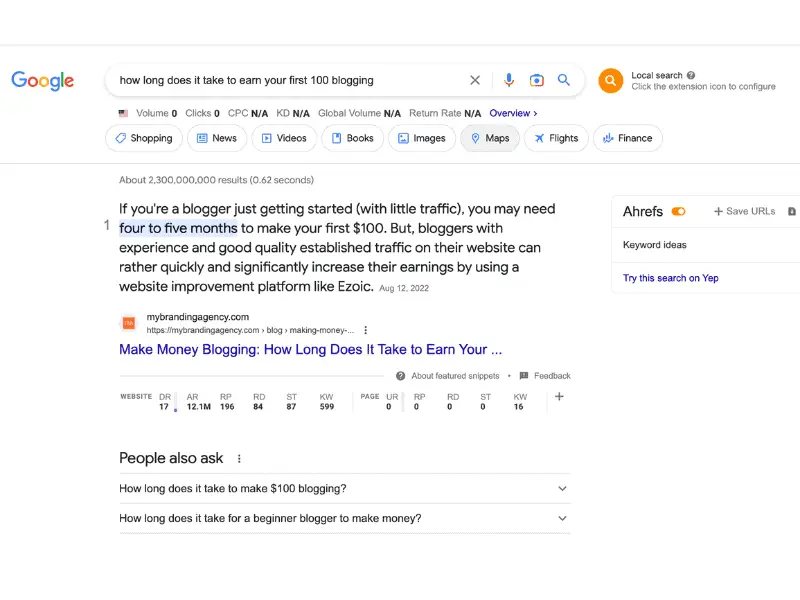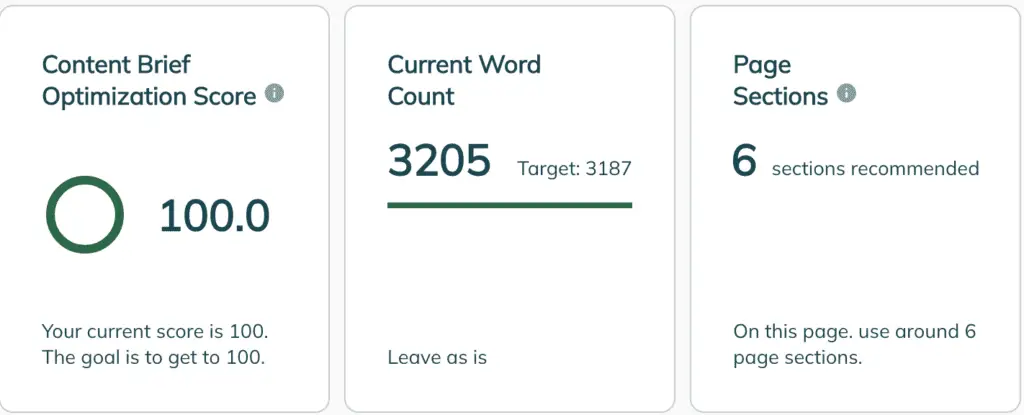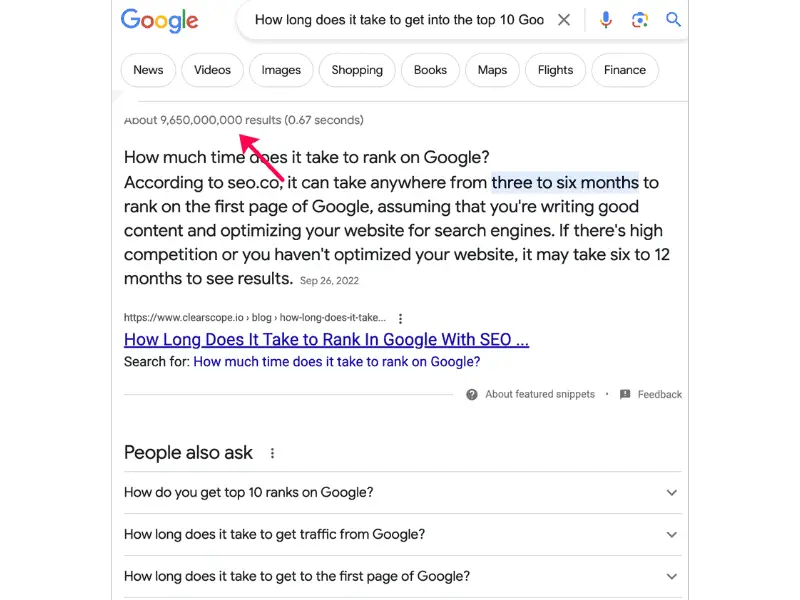Is SEO Worth It? Debunking the Myth and Unveiling the Truth
There is a lingering question: Is SEO (Search Engine Optimization) still relevant in 2023? With the rise of new technologies and the changing algorithms of search engines, some have prematurely declared that SEO is dead or an outdated practice. However, the truth is that SEO is still alive and kicking; it certainly isn’t dead or deceased!
It’s essential to address the misconception that SEO is dying or obsolete. While it’s true that outdated SEO tactics, such as keyword stuffing and unethical practices employed by some self-proclaimed “SEOs,” no longer yield desirable results, genuine search engine optimization remains a vital strategy for online success!
The emergence of new technologies like voice search and the increasing importance of local search has altered the SEO landscape, but they still need to render it relevant. SEO professionals understand the significance of adapting and incorporating these changes into their strategies. By optimizing content for voice search and prioritizing local search optimization, businesses can enhance their online visibility and attract relevant traffic.
Moreover, SEO goes beyond just manipulating search engine algorithms. It encompasses various aspects of digital marketing, including content optimization, user experience, and personalization. Brands that invest in SEO reap the rewards of higher organic search rankings, increased website traffic, and improved revenue.
Providing valuable content that satisfies users’ needs is crucial to avoid falling into the trap of outdated SEO practices! Instead of stuffing keywords unnaturally, aim to create well-written, informative, and engaging content that resonates with your target audience. This approach not only pleases search engines like Google but also builds trust and credibility with people visiting your website.
Backlinks from reputable sources still play a significant role in SEO. However, the focus has shifted from quantity to quality. It’s essential to acquire authoritative backlinks from relevant domains within your industry. Solid and trustworthy backlinks establish your website’s authority and improve its ranking on search engine results pages (SERPs).
The core of SEO lies in optimizing the technical aspects of a website. Examples include:
- Optimizing meta tags.
- Ensuring fast loading times.
- Having a mobile-friendly design.
- Providing a seamless user experience across platforms.
Ignoring these factors can negatively impact your website’s search visibility.

While paid advertising and social media marketing have their place in a comprehensive digital marketing strategy, organic search traffic generated through SEO remains an invaluable asset for businesses. It is a sustainable long-term approach that continuously drives targeted traffic to your website.
✳️ SEO is still a critical marketing practice. It has evolved alongside advancements in technology and search engine algorithms. By adapting to these changes, providing valuable content, and optimizing the technical aspects of your website, you can harness the power of SEO to improve your online presence, attract qualified leads, and achieve long-term success in the digital realm.
Is SEO Dead? The Evolution of Search Engine Optimization
One of the significant shifts in SEO is the rise of voice search. With the increasing use of virtual assistants and smart devices, people rely more on voice commands to find information. This technology has prompted SEO experts to optimize content for voice queries, incorporating long-tail keywords and natural language. By understanding how users interact with voice search, brands can improve their visibility and drive higher organic search results.
Another aspect of modern SEO is the emphasis on personalization and user experience. Search engines like Google take into account a user’s search history, location, and even personal information to deliver tailored search results. To leverage this, SEO professionals focus on content optimization, ensuring that it provides relevant and valuable information to users. By catering to individual preferences, brands can establish themselves as authorities in their respective industries and gain a competitive edge.
Moreover, it would help if you considered the importance of local search. With the growing dominance of mobile devices, users often search for businesses or services nearby. Optimizing for local search involves creating location-specific content, building citations, and managing online reviews. By targeting local audiences effectively, companies can drive higher foot traffic, generate more leads, and increase revenue.
SEO is crucial to any successful marketing strategy in today’s digital landscape. It is not an outdated concept but rather a dynamic and ever-evolving practice. By staying updated with the latest trends and algorithms, brands can ensure their websites rank higher on search engine results pages (SERPs). Staying up to date, in turn, leads to increased visibility, improved brand reputation, and, ultimately, higher revenue.
✳️ While outdated SEO tactics are obsolete, the evolution of search engine optimization has paved the way for more sophisticated strategies. With a focus on user experience, personalization, and staying up-to-date with the latest trends, businesses can harness the power of SEO to drive organic traffic, establish authority, and achieve digital marketing success.
Outdated SEO Practices: How to Avoid Getting Left Behind
SEO continues to thrive, proving its vitality and dispelling claims of its demise. However, there are obsolete practices within the realm of search engine optimization that can hinder your success. It’s crucial to stay current with algorithm updates and industry best practices to achieve sustainable results. I recommend signing up for Google’s Keyword newsletter here. This will get the latest news from Google in your inbox. Let’s explore some outdated SEO practices and why they should be avoided.
1. Keyword Stuffing: A Bad Tactic of the Past
In the early days of SEO, keyword stuffing was a common practice. This involved overloading web pages with excessive keywords to rank higher in search results. However, search engines like Google have evolved to prioritize high-quality content that provides value to users. Keyword stuffing is now considered a spammy technique and can lead to penalties or decreased organic search rankings.
2. Excessive Backlinking: A Domain’s Authority Matters
Backlinks, or incoming links from other websites, have long been a critical factor in search engine rankings. However, the emphasis now lies on the quality and relevance of these backlinks rather than sheer quantity. Building excessive backlinks from low-quality or unrelated websites is an outdated practice that can harm your website’s authority and rankings. Focus on acquiring high-quality backlinks from reputable sources relevant to your industry or niche.
3. Focusing Solely on Search Engine Rankings: A Narrow Approach
In the past, businesses and SEO professionals often focused on achieving high search engine rankings. While ranking well is essential, it’s equally crucial to consider other aspects of digital marketing. The rise of voice search and the increasing importance of local search has expanded the SEO landscape. Neglecting these areas can result in missed opportunities for reaching your target audience effectively.
4. Neglecting Content Optimization: Providing Value to Users
Content optimization plays a pivotal role in SEO success. Outdated SEO practices often need more attention to creating high-quality, user-centric content. Today, search engines value well-written, informative, and engaging content that addresses users’ needs. Rather than simply optimizing for search engines, focus on creating valuable content that resonates with your target audience. This approach will naturally attract organic traffic and improve your search engine rankings.
To ensure your SEO strategies align with the current landscape, it’s crucial to keep up with industry updates, follow reputable sources like Forbes Agency Council, and stay informed about the latest trends and best practices. By avoiding outdated SEO practices and embracing the evolving nature of search engine optimization, you can position your business for long-term success in the digital realm.
Remember, SEO is still alive but requires a holistic approach beyond outdated tactics. Adapt to the changing SEO landscape, provide value to users, and focus on creating a solid online presence across various platforms to drive higher brand visibility, increase organic traffic, and generate revenue for your business.
The Power of Compelling Content: SEO’s Impact on User Engagement
Compelling content’s importance cannot be overstated in the information overload age. Search engines like Google prioritize high-quality content that provides value to users. Businesses should create informative, relevant, and engaging content that resonates with their target audience.
I highly recommend utilizing Grammarly, the tool I rely on to review my blog content meticulously. Grammarly’s Grammar Check feature is an extensive and automated editing tool scrutinizing over 250 common and advanced English grammar rules. Renowned among students, business professionals, writers/editors, teachers/educators, job seekers, and English language learners, Grammarly is an invaluable asset. If you’d like to try it, I invite you to use my affiliate link for a trial and extend my heartfelt appreciation for supporting the blog’s affiliate partners. 👍

SEO professionals understand the significance of content optimization in the digital landscape. By crafting compelling content that aligns with users’ search intent, businesses can attract organic traffic and increase user dwell time on their websites. Search query response posts, in turn, lead to higher search rankings and improved visibility in search engine results.
The rise of voice search and the increasing importance of local search has further emphasized the need for businesses to provide valuable content. By optimizing their content for voice search and including relevant information about local services and locations, brands can effectively reach their target audience and drive more organic search traffic.
It’s important to note that user engagement goes beyond just attracting visitors to a website. Compelling content can also lead to higher conversion rates and increased revenue. People who find valuable information are likelier to trust the brand and purchase or engage with the business.
In today’s digital landscape, content is the key to success. Outdated SEO practices are being replaced by a focus on creating high-quality, informative, and engaging content. The Forbes Agency Council even advises businesses to avoid obsolete SEO tactics and instead prioritize content that provides value to users.
To achieve optimal results, businesses should consider various aspects of content creation. Better organic results include:
- Optimizing text for relevant keywords.
- Ensuring a user-friendly website design.
- Providing personalized content that addresses the specific needs and interests of the target audience.
Additionally, incorporating user-generated content and encouraging interaction and feedback can enhance user engagement.
✳️ Compelling content significantly impacts user engagement and SEO performance. SEO is not deceased or an outdated practice; it has evolved to adapt to the changing digital landscape. By focusing on content creation and optimization, businesses can build their online presence, improve search rankings, and ultimately drive success in the competitive world of digital marketing.
Read about: What are some common SEO mistakes in digital content production?
Unlocking Google’s Algorithms: Understanding the Inner Workings of Search Rankings
To succeed in SEO, it’s crucial to understand how search engines evaluate and rank websites. Google’s algorithms consider several factors when determining a website’s ranking. These factors include the website’s authority, relevance, user experience, and content optimization. By aligning with these factors and staying up to date with algorithm changes, businesses can improve their chances of ranking higher in search engine results and attracting more organic traffic.
One outdated SEO practice that should avoid entirely is keyword stuffing. Previously, some SEO professionals crammed their content with keywords to manipulate search engines. However, search engines have become more intelligent and can now recognize and penalize this tactic. Instead, focus on providing valuable and relevant content that naturally incorporates keywords to enhance the user experience.
Optimizing your content for voice search queries can significantly improve your visibility with the increasing popularity of voice assistants and bright devices. Voice search often involves longer, conversational queries, so adjusting your keyword strategy to target these natural language queries is essential.
Pro Tip – My leading SEO formula is as follows:
*Search Engine Title – (this is the title that search engines see) It is the title tag on your page. In some cases, this is called your metta title. This is the most important place to put your main keyword and other important terms.
*Page title – (this is the title visitors will see) This is your H1 tag. You should only have one H1 on your page. Importantly, your title tag and H1 should be as identical as possible. The title you show Google should be the title you offer your visitors.
*Sub Headings – (these are the titles in sections on your page and are your H2 or H3 tags) All well-written pages should be broken up into sections. Visitors in Google like to like to read pages that are broken up into easy-to-understand sections.
*Body Content or Main Content – (this is the meat of your page where all your paragraph content is)
*You should strive to use the primary keyword/s in the top 4 places. In the title tag, in the H1, in paragraph tags, and in the URL.
(A really useful SEO tool I use to help with the SEO formula I mentioned above. It’s called Pageoptimizer Pro. This fantastic tool provides a Content Brief Optimization Score, Word Count Target, and Page Section Recommendations. I find it incredibly helpful to have all of this information in one place, and it’s helped me improve the quality of my blog posts. Highly recommend giving it a try!)

Furthermore, content optimization remains a core component of effective SEO. By creating high-quality, engaging content that meets the needs of your target audience, you can enhance user satisfaction and encourage them to spend more time on your website. This can signal search engines that your content is valuable and relevant, leading to higher rankings.
Building a strong backlink profile is another critical factor in SEO. Backlinks from reputable websites in your industry can boost your website’s authority and credibility in the eyes of search engines. However, it’s crucial to focus on quality rather than quantity. Obtaining low-quality or spammy backlinks can harm your rankings and even result in penalties from search engines.
While SEO has evolved, it’s still not a one-time task but an ongoing process requiring continuous learning and adaptation. By focusing on user experience, providing valuable content, and staying up to date with the latest SEO practices, businesses can improve their search engine rankings, attract more organic traffic, and ultimately drive higher revenue.
Boost Your Website’s Visibility: Mastering Organic Search
There are several key strategies to focus on to enhance your website’s visibility in organic search. Firstly, identifying and targeting relevant keywords is essential. By conducting thorough keyword research and incorporating these terms strategically throughout your website, you can improve your chances of ranking higher in search engine results.
Topical Authority and How to Achieve Master Status
To achieve Topical Authority, it is crucial to cover each topic as thoroughly as possible, surpassing your competitors’ efforts comprehensively. Maintaining consistent coverage of a particular subject over an extended period is also essential. Once you attain Topical Authority status, Google will prioritize and elevate your ranking above others in your niche. This commanding ranking factor holds the potential to surpass the weaknesses of other websites.
The Size of the Topic
Determining the magnitude of the topic is crucial. Is the topic excessively narrow or overly extensive? The advantage is that once we ascertain whether the topic is too limited or too extensive, we can craft content that strikes the perfect balance.
The Difficulty of the Topic
The complexity of the subject matter varies. Specific niches can be particularly challenging due to high saturation or difficulty establishing authority within the industry. Google places significant importance on finances or personal well-being, commonly called “Your Money or Your Life” (YMYL). When individuals search for information directly impacting their financial or health situation, Google prioritizes providing accurate information. This is achieved by assessing the authoritativeness of the website and the content creator. Establishing such authority requires time and, in some cases, credentials and professional experience. You are in a favorable position if your topic is not too obscure and does not fall under the YMYL category. However, if it is YMYL or closely related, it is crucial to recognize that achieving success requires more time and effort.
Validation and Search Analysis
Validation and search analysis, also known as keyword research, involves identifying specific topics to write about by analyzing search queries that people enter into Google’s search bar. Various tools, many of which are free, can be used to find these searches. One effective method is to use Google directly by typing a partial search and observing its auto-suggestions. The “People also ask” section on the search results page is particularly valuable, as it presents a range of related queries. By exploring these suggestions, you can compile a comprehensive list of search queries with a reasonable search volume. These queries are more likely to yield valuable topics. While the questions at the bottom of the page may take longer to be as helpful, it’s still worth considering them, as they might contain relevant searches. This approach is just one of the many ways to discover compelling topics. Additionally, you can utilize question words like “who,” “when,” “where,” “what,” “how,” Etc. by typing partial or complete questions related to your topic to see what other people are searching for. This process will provide an excellent starting point for creating content and developing topics.

I performed a Google search in this screenshot using the query, “How long does it take to get into the top 10 Google positions?” The search generated approximately 9,650,000,000 results.
Optimizing meta tags is another critical aspect of organic search. Crafting compelling meta titles and descriptions that accurately represent your content can entice users to click through to your website when they see it in search results. This optimization technique also contributes to improved visibility in search engines.
Building a solid online presence is equally important. Engage in guest blogging, social media marketing, and influencer collaborations to expand your reach and attract organic traffic. You can establish your brand as a trusted industry leader by actively participating in relevant online communities and sharing valuable insights.
While various tactics and techniques are involved in mastering organic search, it is recommended to seek the expertise of SEO professionals or agencies. They can provide the necessary guidance and support to help you successfully navigate the complex world of search engine optimization.
✳️ Organic search still needs to be updated. By focusing on relevant keywords, optimizing meta tags, creating valuable content, and building a solid online presence, you can boost your website’s visibility and drive significant growth for your business. Embracing the power of organic search is essential in today’s digital landscape, and it remains a cornerstone of effective digital marketing strategies.
The Future of SEO: Embracing Change and Maximizing Opportunities in the Evolving Landscape
As technology advances and AI tools such as ChatGPT, the future of SEO holds exciting prospects. With the increasing popularity of voice, local, and personalized search results, SEO professionals must adapt their strategies to meet these emerging trends. Rather than considering SEO as dead or outdated, businesses should recognize its essential role in digital marketing.
While outdated SEO tactics may no longer be effective, the core principles of SEO continue to play a crucial role in improving website visibility, driving user engagement, and achieving sustainable organic growth. By staying informed, adapting to changes, and implementing effective strategies, businesses can harness the power of SEO to thrive in the competitive online landscape.
The evolving SEO landscape offers new opportunities for businesses. Embracing change and leveraging data can help maximize these opportunities. By staying ahead of the curve and understanding the impact of voice search, local search, and personalized search results, businesses can tailor their SEO strategies to capture a wider audience.
✳️ Despite misconceptions and claims of its demise, SEO remains vital in digital marketing. Businesses should avoid outdated SEO practices such as keyword stuffing and instead focus on content optimization, building authority, and acquiring quality backlinks. By doing so, they can ensure higher visibility, increased brand recognition, and improved revenue generation. The future of SEO lies in adapting to changes, providing valuable content to users, and staying relevant in the ever-evolving digital landscape.


